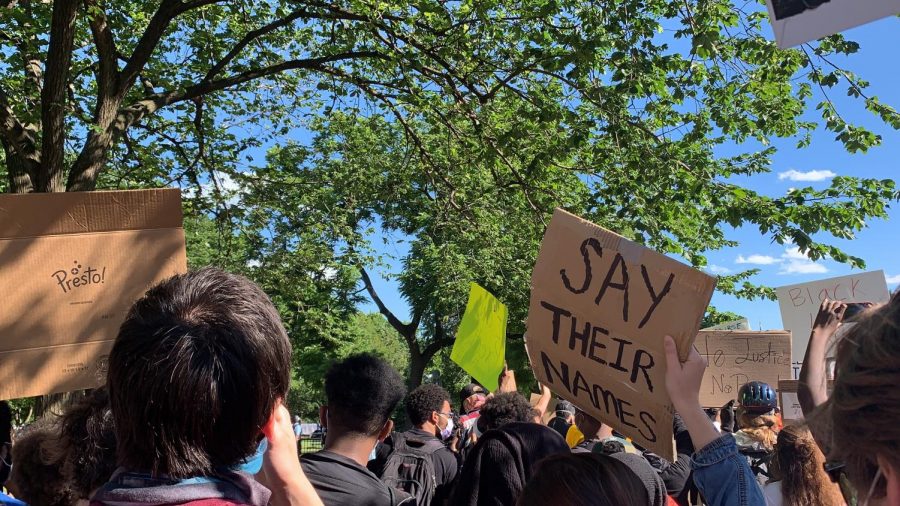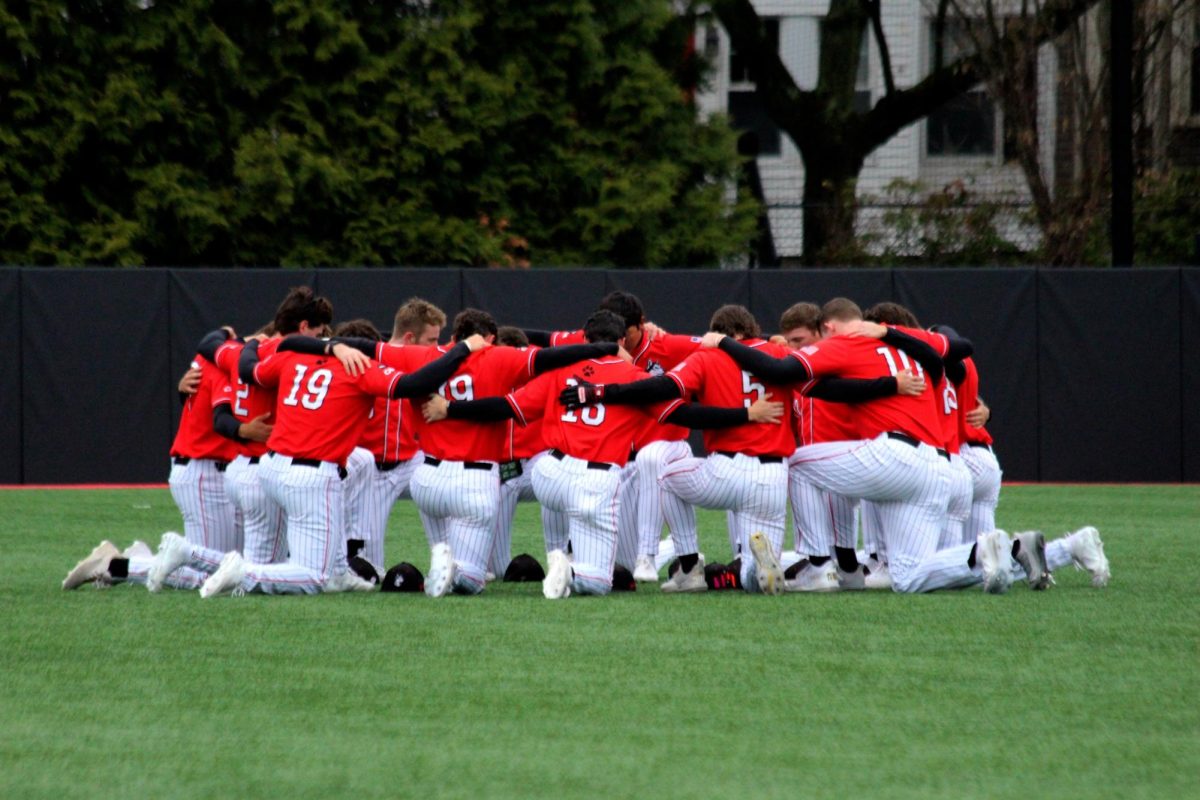Column: Stop making martyrs out of police brutality victims and demand justice

Protesters flood the streets of Washington, DC in response police brutality in America.
September 3, 2020
You should not reach into your car after police officers taser you, but you should not be shot seven times if you do. You should not resist arrest if you are caught using counterfeit money, but you should not be choked to death if you do.
We continue to watch the country erupt into chaos in response to police brutality, and each time nothing changes. Black people continue to die at the hands of police officers who face little to no consequences.
There is no doubt Black people are oftentimes met with excessive force during police encounters, resulting in their unjust deaths. However, in order to effectively demand justice, we must not make martyrs out of these individuals, whether they have criminal pasts or are model citizens.
As we saw in the cases of George Floyd and Jacob Blake, the media revealed both of their less-than-perfect pasts following the police brutality incidents. Both men have extensive criminal records. Between 1997 and 2007, Floyd was arrested nine times for theft and drug charges. In 2007, he was involved in an armed robbery in which two women and a toddler were held hostage. On May 3, 2020, Blake’s girlfriend filed a complaint against him for sexual assault, domestic abuse, trespassing and theft, resulting in an open case and warrant for his arrest. Both men committed atrocious crimes which should be prosecuted accordingly.
However, I must emphasize that highlighting their criminal pasts is not to endorse the violent actions of the police officers — but these men also do not deserve martyrdom. Celebrities paid tribute to them at the MTV Video Music Awards, which drew an audience of 6.4 million views this year, and on their social media platforms with huge followings. Professional athletes are boycotting their games and wearing apparel displaying the names of these men. Floyd’s funeral hosted thousands of people to pay their respects, while many couldn’t attend their own loved ones funerals due to the COVID-19 pandemic. Police brutality and racism undoubtedly warrant attention, but these individuals must not be the center of it. Rather, we must focus on addressing systemic racism in our society that allows these incidents to occur in the first place.
Furthermore, these recent incidents with the police are entirely separate from the victims’ pasts. On crime TV shows, we frequently hear attorneys exclaim “Irrelevant!” in the courtroom when “facts outside the issue of the lawsuit” are used against the opposition. While the evidence brought to light by the opposing attorney may be true, those facts are sometimes deemed irrelevant to the case and the jury is ultimately told to disregard the statement. Under this same premise, we can agree that Blake and Floyd’s criminal records are a testament to their troubled pasts, yet they are irrelevant to the way the police officers treated them at the time of their arrests. While the officers had probable cause to arrest both Floyd and Blake, the amount of force used against them was excessive and unnecessary.
This is not to say Black people must be a Harvard graduate like Christian Cooper, or a seemingly harmless violinist who frequently volunteers like Elijah McClain, to be deemed nonthreatening by the police because they, too, were racially profiled. And unfortunately, 23-year-old McClain died after being placed in a chokehold by police and heavily sedated by a paramedic. Justice should be granted on a case-by-case basis, and thus should not require model behavior in the past to be deemed worthy of it. Even when Black people live up to the standard of honorable citizens, they are still treated unjustly by the police.
By making these individuals martyrs, we make them seem less human. The root of the problem is just that — Black lives are not valued as much as other human lives. Making them martyrs won’t achieve justice because it only further removes police brutality victims from being seen as human. By idolizing them, with pasts both good and bad, we give them five minutes of fame until people get bored and stop posting about their stories on social media.
These men were not model citizens and should not be placed on a pedestal. But they are still human beings whose past actions do not condone mistreatment from the police. They deserve justice and portraying them as martyrs is not the answer.
Instead, we must demand proper investigations, reform and justice in response to police brutality. These situations are nuanced, complicated and oftentimes do not present a clear answer. But we must stop searching for a face to fit the movement, or else we will never find progress.






